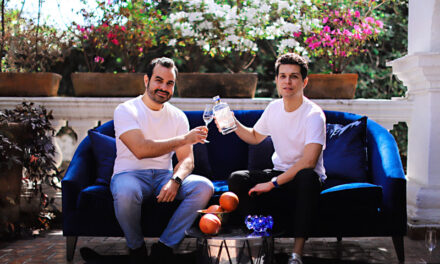Rape: A South African Nightmare, is a contribution by legendary South African human rights researcher Pumla Dineo Gqola, on how to curb rape and hold rapists accountable. It provides steps to assist in the elimination of elements of the barbaric atrocity that holds the society hostage. She elaborates how to terminate the cycle of complicity that feeds into the existence of rape. The book also addresses child rape together with myths and norms that enable rape.
Pumla states vividly that rapists can be anywhere and everywhere, imposing and reigniting themselves when least expected. The manufacture of female fear is a part of how the community collectively gets socialised to subconsciously accept the omnipresence of rape, most often by being invited to be vigilant and accept rape culture.
It’s also important to apprehend that women’s pain is viewed as negotiable and while rapists know that they inflict traumatic physical and emotional harm, they often proceed to do so with no contrition. They do so regularly, knowing that many will line up alongside them to defend them against such accusations, demanding faded evidence for the criminality and in doing so, defending the perpetrators.
During colonialism and apartheid, white supremacy constructed a stereotype of a black man as a rapist, and created another stereotype of black women as hypersexual and therefore impossible to rape. This disconcerting concrete narrative fed the public with the misapprehension and false impression that black women are safe to rape, that raping them is bereft of harm and is therefore permissible.
It is not by accident that when black women say they have been raped, they are almost never taken seriously and in many instances, are expected to just get over it. The society has been brainwashed by over a century of copious programming and indoctrination that black women’s rape cases are trivial.
Amanda Mnguni, a black soft-spoken teenager whose ancestral home is Msunduzi in Kwazulu Natal Province, was born in Dobsonville Township in Soweto, Johannesburg. She was raised by her single mother Andile, and her older sister Mbali, who was six years her senior.
At the age of 14, her neighbourhood pastor, Thulani Gumede, who Amanda was familiar with, requested her mother Andile to allow her, to bring him the weekly cash offering, since Andile was engaged. Thulani was considered a close family friend by Amanda’s mother and lived a walking distance from their one bedroom rented house.
When Amanda arrived in pastor Thulani’s house, he raped her and threatened her never to reveal the violation to anybody by displaying a gun. He stated that if she exposed him, he would kill her mother and her sister Mbali. According to international statistics, over 93 per cent of rape victims are transgressed by people who are familiar to them. Amanda, who was in bewildering distress, walked back home and noticed she was bleeding profusely.

Photo credit: Photo | Pool
When she arrived home, her sister Mbali noticed the bleeding and assumed she was on her menstrual cycle, before helping her clean herself. Through Amanda’s inevitable emotional deceleration of trauma horror, shame and death threats from pastor Thulani, she did not disclose what had transpired.
She also possessed the conviction that no one would believe that pastor Thulani, who was held in high regard in society, had raped her. She saw capitulation as her only option. As weeks and months transcended, she began experiencing morning sickness.
Her mother accompanied her to visit a doctor in Tshepo Themba General Hospital in Roodepoort. The facility conducted a pregnancy test and found out she was expectant. Out of the combination of fear and post-traumatic stress disorder, Amanda lied that her boyfriend from school who had since moved to Durban, was responsible for impregnating her. She feared the consequences of uttering Thulani Gumede’s name, since she was haunted by the rape and sadistic death threats he had made towards her family.
Her poor mother decided to take responsibility for her unborn child and would frequently visit Tshepo Themba General Hospital with her. During one of the maternity visits, after a blood and urine test, the doctor revealed to Amanda and her mother Andile a compounding diagnosis that had caused her continual attrition. Amanda was HIV positive and had also been infected with Herpes Simplex 2.
Amid the alarming prognosis, Amanda was placed on antiretroviral treatment and acyclovir to control the Herpes virus during birth. Once she delivered, she was advised to bottle feed her baby with formula and avoid breastfeeding to prevent her new-born baby boy, Ntando from infection, as she administered him with Prophylaxis, to reduce the risk of HIV acquisition.
Amanda did not reveal her rape ordeal until she was 23 years old, when she tearfully confided to her sister Mbali. By now, the unremorseful pastor Thulani had been arrested on multiple rape charges and released for lack of evidence. Several attendants of his church including Amanda’s mother Andile, had initially defended Thulani. Until she astonishingly began noticing the striking and glaring resemblance of Amanda’s son Ntando to him. She was then enlightened by Mbali that he had raped Amanda and was responsible for infecting her with sexually transmitted diseases.
Jeff Anthony is a novelist, a Big Brother Africa 2 Kenyan representative and founder of Jeff’s Fitness Centre @jeffbigbrother





